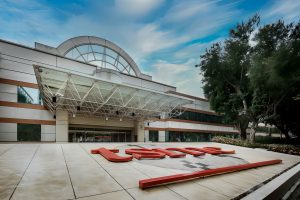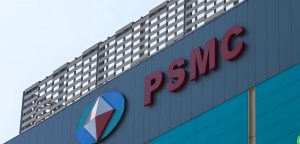Popular Keywords
- About Us
-
Research Report
Research Directory
Semiconductors
LED
Consumer Electronics
Emerging Technologies
- Selected Topics
- Membership
- Price Trends
- Press Center
- News
- Events
- Contact Us
- AI Agent
About TrendForce News
TrendForce News operates independently from our research team, curating key semiconductor and tech updates to support timely, informed decisions.
- Home
- News
[News] Tesla Taps Samsung for A16 Chips—Reportedly Set for Supercomputer and Robots, Not Cars

According to a report from TechNews, citing Notebookcheck, Tesla has recently signed a multi-billion-dollar AI6 chip production agreement with Samsung Foundry. Analysts cited in the report note that Tesla’s 2nm AI6 chips are expected to enter mass production in 2028, with peak output projected between 2029 and 2032.
Notably, South Korean media outlet The Elec notes that Tesla’s next-generation A16 chips are intended to power its upcoming Dojo supercomputer and the system-on-chip (SoC) for its humanoid robot, Optimus. Samsung Foundry has reportedly begun initial preparations to manufacture these chips using its advanced 2nm process, the report adds.
During Tesla’s latest earnings call, Elon Musk stated that the company plans to standardize the AI6 chip across all relevant products—including vehicles, robots, and the Dojo Supercomputer. Notebookcheck suggests that the initial batches of AI6 may first be deployed in Optimus humanoid robots and Dojo clusters, while Tesla vehicles continue operating with AI4 and AI5 chips.
Samsung Bets on 2nm Yield Gains to Deliver Tesla’s AI Chips
Meanwhile, TechNews mentions that Samsung initially faced challenges with low yields in its 2nm GAA technology but has since improved yields to approximately 40%. Yield rates at its Taylor facility are expected to reach 60% or higher once new equipment is installed in 2026, as TechNews notes.
However, TechNews points out that if Samsung fails to meet its yield targets, it may have to produce Tesla’s AI6 chips at cost—or even at a loss. Despite this, Tweaktown notes that Samsung’s decision to proceed reflects the strategic value of securing a high-profile tech customer for its 2nm process. Citing sources, The Elec adds that successful mass production at the Taylor fab could serve as a key reference point for attracting other major U.S. tech clients
As TrendForce indicates, the Samsung-Tesla collaboration is unlikely to bear fruit before 2028, with significant uncertainties remaining. The outcome will depend on the performance of Samsung’s initial 2nm output. In the meantime, Tesla is expected to continue relying primarily on TSMC for chip production.
Read more
- [News] Samsung Lands $17B Foundry Deal as Musk Confirms Tesla’s AI6 Chips to Be Made in Taylor
- [News] Samsung to Produce Tesla’s AI6 Chips, Escalating 2nm Race with TSMC
(Photo credit: Tesla)





